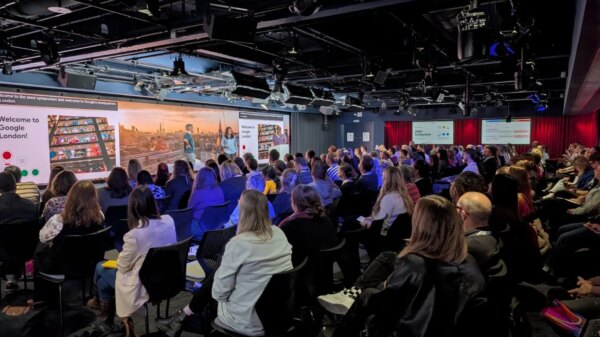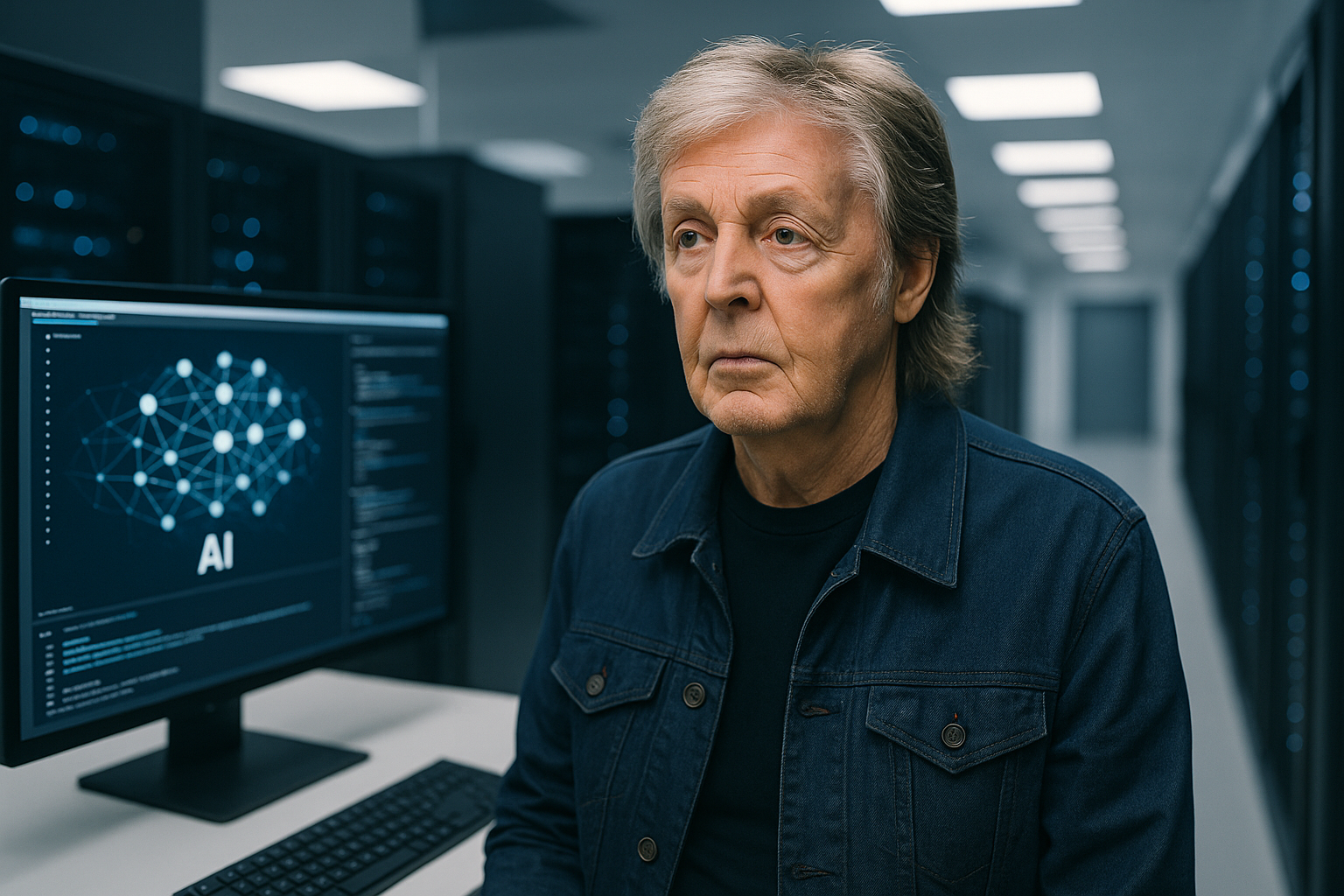In a striking move against the evolving landscape of artificial intelligence, Paul McCartney, the iconic former Beatle, is set to release an unconventional new track that consists predominantly of silence. The song, titled (bonus track), clocks in at just under three minutes and is featured on the B-side of an album titled Is This What We Want?, which will be released on vinyl later this month. This release represents McCartney’s first new recording in five years and serves as a stark commentary on the ongoing debate surrounding copyright laws and the utilization of artists’ intellectual property by AI companies.
As the UK music industry grapples with the implications of generative AI, McCartney’s contribution is part of a larger protest against the perceived copyright theft by companies like OpenAI, Google, and Anthropic. The track opens with 55 seconds of tape hiss, followed by a series of indistinct sounds, highlighting a grim reality: the potential erasure of original music in a landscape dominated by AI-generated content. This nearly silent composition underscores the concerns of many artists who fear their creative works are being exploited without proper compensation.
Industry Pushback Against AI Exploitation
The protest album, which includes other silent tracks, serves as a call to action for the UK government to reconsider its policies that may allow technology firms to train their AI models on copyrighted material without explicit consent from creators. McCartney joins a chorus of artists—including Sam Fender, Kate Bush, Hans Zimmer, and the Pet Shop Boys—in voicing discontent over the government’s lack of protective measures for creatives. The track listing of Is This What We Want? plainly states: “the British government must not legalize music theft to benefit AI companies.”
Ed Newton-Rex, a composer and campaigner for copyright fairness, has expressed concern that the UK government is prioritizing the interests of US tech companies over those of British artists. In his view, the balance between fostering innovation and protecting creators is increasingly skewed in favor of automated systems that may jeopardize the livelihood of the next generation of musicians and writers.
The Future of Music and AI Regulation
At 83 years old and currently on tour in North America, McCartney has become one of the leading voices advocating for the protection of artists’ rights in the age of AI. He has previously stated, “If AI wipes that out, that would be a very sad thing indeed.” His sentiments resonate widely among artists in a landscape increasingly dependent on AI technologies for creation and distribution.
Meanwhile, the UK government appears to be navigating a complex regulatory landscape. Proposed consultations regarding “text and data mining” may lead to significant changes in copyright law, potentially allowing tech companies to use creative works for training AI models unless creators actively opt out. The creative industries contribute approximately £125 billion annually to the UK economy, making the stakes incredibly high as the government attempts to balance economic interests with regulatory oversight.
Despite ongoing discussions, legislative changes regarding AI and copyright are not expected to be debated in parliament until 2026. In the interim, the government is forging partnerships with AI firms, including OpenAI and Google, to promote AI adoption across various sectors.
The tension surrounding AI copyright issues has garnered attention even from international figures, with Donald Trump emphasizing the need for minimal regulation that would allow AI companies access to copyrighted materials without excessive legal hurdles. Critics argue that this approach could undermine the very foundation of creative professions, further marginalizing artists in favor of corporate interests.
As prominent figures in the music industry rally against the potential hazards posed by unregulated AI, the call for protective measures remains urgent. As Beeban Kidron, a cross-bench peer and film director, articulated, the current government efforts appear to be “trying to play both sides and convincing neither,” raising questions about their commitment to safeguarding creators’ rights in an increasingly AI-driven future.
The dialogue surrounding AI and copyright law will continue to evolve, but McCartney’s silence speaks volumes about the urgent need for clarity and protection in the creative industries. As the world awaits the release of Is This What We Want?, it remains to be seen how the music community, supported by advocates like McCartney, will shape the future narrative surrounding creativity and technology.
See also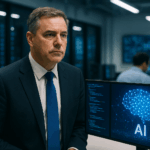 Australian Government Urges AI Strategy to Boost Adoption and Trust by 2028
Australian Government Urges AI Strategy to Boost Adoption and Trust by 2028 Cohere Secures $240M for Canadian AI Data Center Amid Concerns Over U.S. Partnerships
Cohere Secures $240M for Canadian AI Data Center Amid Concerns Over U.S. Partnerships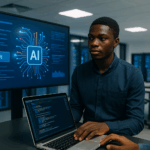 Ghana Government Launches Free 12-Month AI Access for Students with Google Partnership
Ghana Government Launches Free 12-Month AI Access for Students with Google Partnership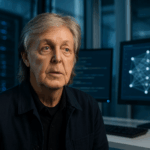 Paul McCartney Joins 1,000 Artists in AI Protest with Silent Track on New Album
Paul McCartney Joins 1,000 Artists in AI Protest with Silent Track on New Album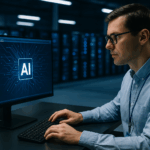 Canada’s 2025 Budget Prioritizes AI Adoption, Risks Oversight and Regulation
Canada’s 2025 Budget Prioritizes AI Adoption, Risks Oversight and Regulation

